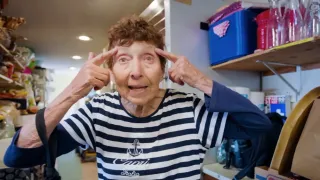October 5, 2024
Florida Police Look into Whether Excessive Force Used on Protester from Queer Group
READ TIME: 1 MIN.
The Orlando Police Department said Monday that it was investigating whether excessive force was used when an officer shoved a woman who protested the conflicts in Gaza and southern Lebanon at a peaceful rally over the weekend in central Florida.
The police agency said on social media that officers were called Saturday afternoon to downtown Orlando following the nearby peaceful protest. They were responding to an argument between protesters from the group Central Florida Queers for Palestine and a woman who was shouting at them.
The police department said the officers were trying to prevent a fight. Video obtained by Orlando television station WFTV shows the protester approaching the shouting woman and the officer on a bicycle then shoving the protester to the ground. Fellow protesters then surround her and confront the officers, video released by the department shows.
Eight people were arrested on charges including disorderly conduct, battery on a law enforcement officer and resisting arrest with and without violence. They were released on bond.
"We believe in the right to protest and peacefully advocate for justice," Central Florida Queers for Palestine said in a statement Saturday. "Today's arrests are a stark reminder of the challenges faced by those who stand up for human rights."
The police department said the protesters had demonstrated a "willingness to physically attack officers while in the process of making arrests and keeping the peace."
"The Orlando Police Department has an obligation to protect all residents and visitors and is dedicated to ensuring the safety of all who choose to assemble peacefully," the agency said.






